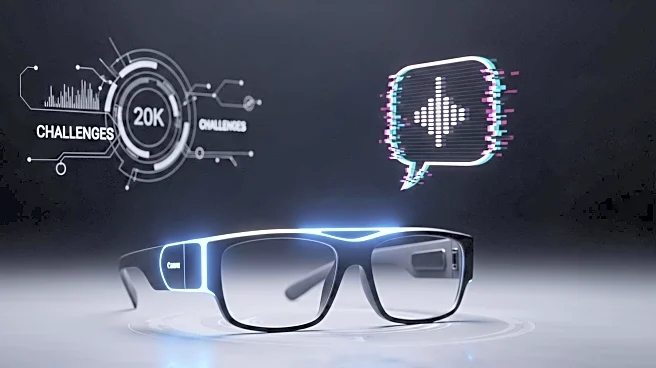What is the story about?
What's Happening?
Rokid, a Chinese company, has introduced its smart glasses, Rokid Glasses, which feature a dual-micro LED display and various functionalities such as teleprompter and translation capabilities. Despite the innovative features, the voice assistant, activated by the phrase 'Hi, Rokid,' has been reported as unreliable, particularly for English-speaking users. The glasses are equipped with a 12-megapixel camera and can perform computer vision tasks like menu translation. However, the voice assistant's performance issues may hinder the user experience in the U.S. market.
Why It's Important?
The development of smart glasses represents a significant advancement in wearable technology, offering potential applications in augmented reality and real-time information access. Rokid's entry into the U.S. market highlights the growing competition in the smart glasses sector, which includes major players like Meta. The voice assistant's functionality is crucial for seamless user interaction, and its current limitations could impact consumer adoption and satisfaction. The success of Rokid Glasses in the U.S. could influence future innovations and investments in smart wearable technology.
Beyond the Headlines
The challenges faced by Rokid's voice assistant underscore the importance of language and cultural adaptation in technology development. As smart glasses become more prevalent, ethical considerations regarding privacy and data security will become increasingly important. The ability to capture and translate conversations raises questions about consent and surveillance, which may require regulatory attention.

















